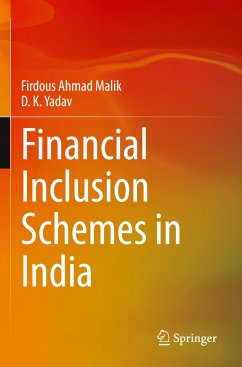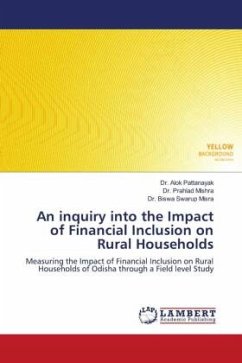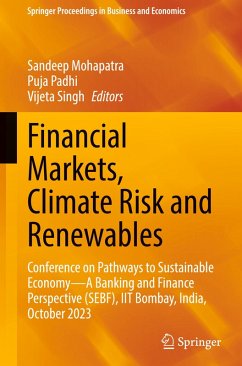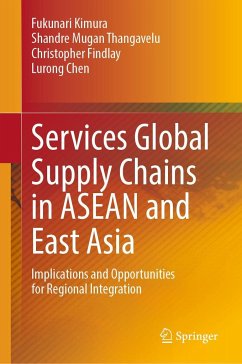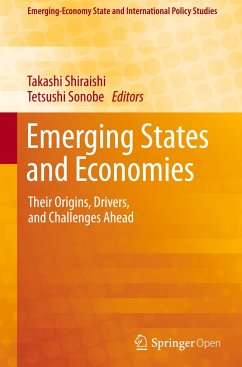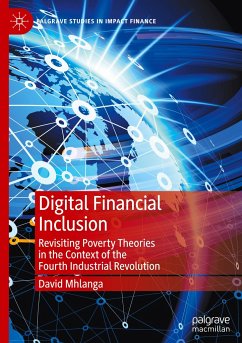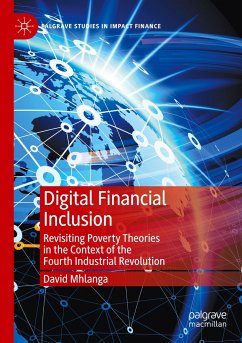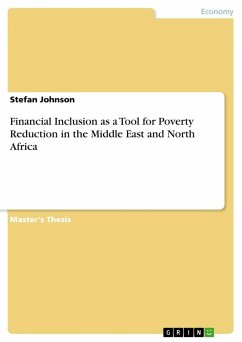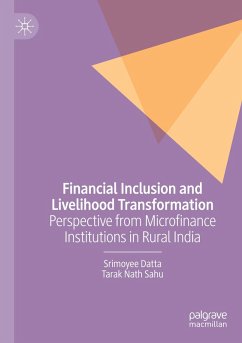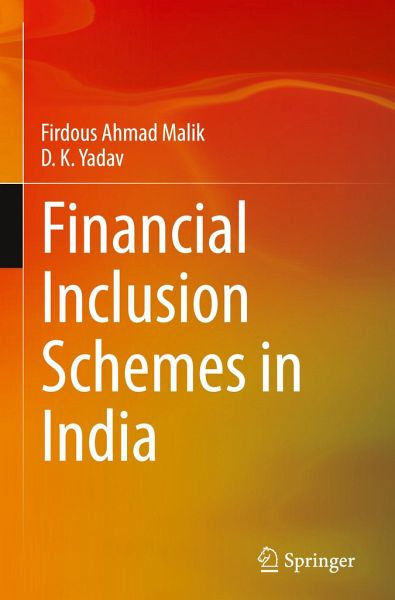
Financial Inclusion Schemes in India
Versandkostenfrei!
Versandfertig in 6-10 Tagen
83,99 €
inkl. MwSt.
Weitere Ausgaben:

PAYBACK Punkte
42 °P sammeln!
The exclusion of the destitute population from the formal financial system is a long-standing problem in India. This book examines the performance of financial inclusion policies in India to understand their impact on two urban vulnerable groups, Slum Dwellers and Beggars. This study includes analysis at the national level, the variables of the financial inclusion index like Penetration, Availability, and Usage from 2006 to 2020 from the world bank data set. Similarly, the authors examine five policies on financial inclusion by conducting a primary level survey on two urban capital cities of L...
The exclusion of the destitute population from the formal financial system is a long-standing problem in India. This book examines the performance of financial inclusion policies in India to understand their impact on two urban vulnerable groups, Slum Dwellers and Beggars. This study includes analysis at the national level, the variables of the financial inclusion index like Penetration, Availability, and Usage from 2006 to 2020 from the world bank data set. Similarly, the authors examine five policies on financial inclusion by conducting a primary level survey on two urban capital cities of Lucknow and Kolkata, using a well-structured questionnaire for data collection. The authors uses two sampling techniques: simple random in the case of beggars, and stratified random in the case of slum dwellers.
This book highlights the difference between financial access and non-access of household respondents in capturing the impacts of financial inclusion schemes on their socio-economiccondition and financial behavior. The findings indicate that access to these schemes is extremely limited for the underprivileged population, such as beggars and slum dwellers. The analysis has shown that claims made by the government are not based on real-life occurrences. This book demonstrates that these programs have a negligible effect on life-deprived people.
This book will be of interest to academia, policymakers, and society at large.
This book highlights the difference between financial access and non-access of household respondents in capturing the impacts of financial inclusion schemes on their socio-economiccondition and financial behavior. The findings indicate that access to these schemes is extremely limited for the underprivileged population, such as beggars and slum dwellers. The analysis has shown that claims made by the government are not based on real-life occurrences. This book demonstrates that these programs have a negligible effect on life-deprived people.
This book will be of interest to academia, policymakers, and society at large.



